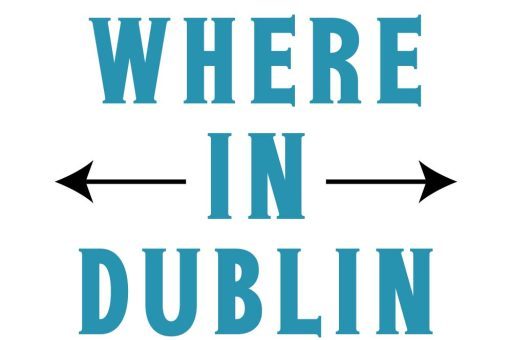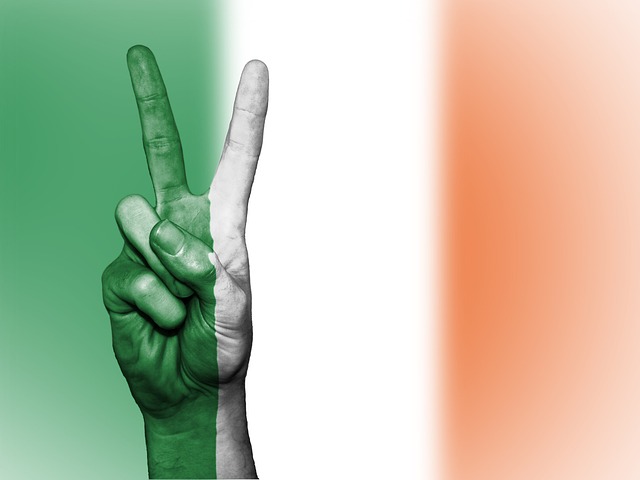When thinking about living, traveling, or even just visiting Europe, Dublin, the UK, and Ireland often come up as top destinations. Each place has its own charm, lifestyle, and opportunities. From my own personal experience, there’s more to these locations than what first meets the eye. Let’s break down the differences, advantages, and realities of each, so it’s easier to see which might suit best.
Let’s Understand the Basics: Dublin, the UK, and Ireland
Before diging deeper, it’s important to clarify what each term really represents.
Dublin
Dublin is the capital city of Ireland, famous for its culture, history, and modern city life. While it’s part of Ireland, it has a unique vibe that blends old-world charm with contemporary energy. Dublin is often seen as Ireland’s economic hub, with booming tech, finance, and creative industries.
Ireland
Ireland is the country where Dublin is located. It is known for its lush green landscapes, friendly locals, and rich cultural heritage. Unlike Dublin, which is urban, much of Ireland is rural, offering a slower pace of life. Ireland can be divided into the Republic of Ireland (southern part) and Northern Ireland (part of the UK), which sometimes confuses people.
The UK
The United Kingdom (UK) includes England, Scotland, Wales, and Northern Ireland. It’s politically separate from the Republic of Ireland but geographically close. The UK has a mix of big cities like London, Edinburgh, and Cardiff, as well as smaller towns and countryside areas. Life in the UK varies widely depending on location, culture, and cost of living.
Cost of Living: Dublin vs. UK vs. Ireland
Cost of living is one of the most common considerations when choosing where to live or visit. From my own personal experience, it can make or break the decision.
Dublin
Dublin is expensive compared to the rest of Ireland. Rent, groceries, and nightlife can add up fast. However, salaries in Dublin often match the high costs, especially in tech, finance, and corporate sectors. Public transport is improving but can feel limited compared to London.
Ireland (Outside Dublin)
Living outside Dublin in towns like Cork, Galway, or Limerick is much cheaper. You get more space for less money, and the natural surroundings are incredible. On the downside, job opportunities can be more limited, and transport isn’t always convenient.
The UK
The UK is a mixed bag. London is notoriously expensive—often more than Dublin in terms of rent and daily expenses. Other cities like Manchester, Glasgow, or Cardiff are significantly cheaper. Overall, the UK offers more variety in cost of living depending on where life takes you.
Lifestyle and Culture
Lifestyle is where Dublin, the UK, and Ireland really show their differences.
Dublin
Dublin combines history with a modern social scene. Pubs, live music, and festivals are everywhere. People are generally open, friendly, and enjoy a good laugh. The city has a fast-paced lifestyle, which is perfect for young professionals.
Ireland (Rural Life)
Outside Dublin, life in Ireland is quieter. Small towns, friendly neighbors, and breathtaking nature dominate. Life is slower, but there’s a sense of community and connection to nature. If someone prefers solitude or a peaceful environment, rural Ireland can be perfect.
UK
The UK offers diversity in lifestyle. London is vibrant and hectic, while cities like Edinburgh or Bath feel historic and cultured. Smaller towns or countryside areas like the Lake District provide calm, scenic living. The UK’s culture is varied due to its regional differences, Scotland, Wales, Northern Ireland, and England each have distinct identities.
Job Market and Opportunities
Jobs are often the deciding factor for moving to a new country.
Dublin
Dublin has a booming tech and finance sector. Many international companies have European headquarters here. From my own personal experience, networking in Dublin is straightforward if someone is proactive, and the city provides excellent career growth opportunities.
Ireland (Other Cities)
Other cities like Cork or Galway offer opportunities in education, healthcare, tourism, and local business. The market is smaller but sometimes less competitive, which can be an advantage.
UK
The UK offers the largest job market among the three. London is a global financial hub, and tech jobs are growing in multiple cities. Healthcare, education, and creative industries are also strong. However, competition can be stiff, especially in big cities.
Education and Universities
Education can shape experiences for young professionals or families.
Dublin
Dublin is home to top universities like Trinity College and University College Dublin. These institutions are prestigious, attract international students, and have strong academic reputations.
Ireland
Other Irish cities have excellent universities too, such as University College Cork and University of Galway. The smaller towns often offer a more intimate learning environment.
UK
The UK is world-renowned for education. Universities like Oxford, Cambridge, and London School of Economics attract students globally. The variety of programs is immense, but tuition can be expensive for international students.
Housing and Accommodation
Where someone lives affects day-to-day life significantly.
Dublin
Dublin housing can be tricky. Apartments are small and expensive, and finding a place quickly can be challenging. Many young professionals share flats to manage costs.
Ireland (Outside Dublin)
Housing outside Dublin is more affordable. Larger homes, gardens, and quieter neighborhoods make rural or smaller-town living appealing. Commuting can be longer but manageable.
UK
Housing depends heavily on location. London is expensive, but cities like Manchester, Leeds, and Birmingham offer much better value. In rural UK, cottages and historic homes are available but may require travel to major cities for work.
Transport and Connectivity
Getting around is easier in some places than others.
Dublin
Dublin has buses, trams, and trains, but traffic can be frustrating. The city is walkable, and cycling is becoming more common.
Ireland
Public transport outside Dublin is limited. A car is almost essential for rural life. However, roads are generally scenic and enjoyable to drive.
UK
The UK has extensive transport options. London has an extensive underground, trains connect cities efficiently, and buses cover most urban and suburban areas. Rural areas may require a car, similar to Ireland.
Food and Nightlife
Dublin
Dublin has everything from traditional Irish pubs to fine dining. The food scene is diverse and continuously growing. Nightlife is active, with live music, bars, and cultural events happening every week.
Ireland (Outside Dublin)
Smaller towns have a slower nightlife, but pubs remain central to social life. Local food is hearty, fresh, and often locally sourced.
UK
The UK has vast diversity in food. London is a hotspot for international cuisine, while smaller cities keep traditional pubs alive. Nightlife varies, but there’s usually something to suit everyone.
Safety and Quality of Life
Safety and comfort are key when moving or visiting.
Dublin
Dublin is relatively safe, but urban crime exists, mostly petty theft. Quality of life is high, thanks to jobs, education, and healthcare.
Ireland
Outside Dublin, Ireland is extremely safe. Low crime rates, friendly locals, and relaxed living make it ideal for families or those seeking peace.
UK
Safety varies by region. Cities like London have higher crime rates, while rural areas are very safe. Healthcare quality is high, but NHS access can sometimes be slow.
Weather and Climate
Weather affects daily life more than expected.
Dublin
Dublin has mild winters and cool summers. Rain is frequent, but the climate is manageable year-round.
Ireland
Rural Ireland is similar, but some areas see heavier rainfall and wind. The countryside is beautiful but can feel isolated during storms.
UK
The UK has diverse weather. Scotland can be cold and rainy, southern England warmer. The variety allows for choices depending on preferred climate.
Social Life and Community
Social integration is easier in some areas.
Dublin
Dubliners are friendly, open, and social. Networking events and cultural festivals provide great opportunities to meet people.
Ireland
Rural communities are tight-knit. People know each other, which can be comforting or challenging for newcomers.
UK
Social life depends on location. Big cities are bustling but can feel impersonal, whereas smaller towns foster strong community ties.
Healthcare and Public Services
Dublin and Ireland
Ireland offers public and private healthcare. Public services can have waiting times, but quality is good. Private healthcare is faster but expensive.
UK
The UK has the NHS, which provides free healthcare at the point of use. Private healthcare exists but isn’t necessary for most people.
Travel and Connectivity
Dublin
Dublin is close to Europe and the UK. Flights are frequent and affordable, making it easy to explore.
Ireland
Travel within Ireland can be longer due to roads, but ferry and air links make travel abroad simple.
UK
The UK’s airports and rail system make international travel convenient. High-speed trains connect London to major cities in under three hours.
Final Thoughts: Which One Suits Best?
Choosing between Dublin, the UK, and Ireland comes down to lifestyle, cost, and priorities. From my own personal experience, Dublin is perfect for city life and career growth, rural Ireland offers peace and community, while the UK provides diversity, opportunities, and flexibility.
It’s worth considering long-term goals, work opportunities, and personal preferences. Each location has pros and cons, but the best choice is the one that matches personal priorities, social needs, and career ambitions.


